KNAW
Since its inception, the Royal Netherlands Academy of Arts and Sciences (KNAW) has been a learned society of outstanding Dutch scientists and scholars. Membership is awarded on the basis of scientific and scholarly achievement. Members are appointed for life. The Academy will appoint a maximum of sixteen new members every year. KNAW membership is regarded as a great honour in the Netherlands.
KNAW members

Since 2024
Mladen Popovic
Mladen Popovic is professor of Old Testament and Ancient Judaism and enjoys a worldwide reputation as an expert on the Dead Sea Scrolls, discovered in desert caves near Qumran, Israel, on the northern shore of the Dead Sea. These ancient manuscripts contain passages from the Bible we know today. Popovic works with other researchers on combining handwriting analysis, artificial intelligence and scientific methods such as carbon-14 dating to determine, with previously unattainable precision, the dates of the manuscripts and even to detect differences between the individual authors. Using these techniques, he has managed to situate Qumran’s pre-Christian, Jewish community within the literary and philosophical cultures of the Hellenistic world and the Roman Near East. His approach has led to a paradigm shift in palaeography, Biblical scholarship and the history of Judaism, and may also be useful in other fields of historical science.

René Veenstra is professor of sociology with a special interest in social development and has pioneered the study of prosocial and antisocial behaviour and focuses in particular on the role of social networks and norms. He developed an innovative perspective on bullying that views this behaviour not as an isolated problem of individuals but as a dynamic that emerges in social networks in which everyone can play a role. He also showed that children who bully others are not simply maladjusted but are often acting strategically to gain status and affection. This reframing has led to a new approach to anti-bullying that focuses on changing the prevailing social norms rather than punishing the bullies. Veenstra was involved in introducing and evaluating an effective anti-bullying programme (KiVa) in the Netherlands and played a vital role in developing longitudinal studies on adolescent social development. He devotes enormous energy to sharing his knowledge of social networks and the mechanisms of bullying with teachers, parents, children and a wider audience. His research has made a significant contribution to promoting positive social interactions and has enormous social relevance.
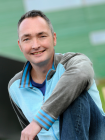
Since 2023
Siewert-Jan Marrink has gained international renown for his molecular simulations of biomembranes, the MARTINI computer model in particular, which can accurately predict the behaviour and the dynamics of complex biological systems. Marrink realized that the molecular structure of biomolecules need to be simplified enough to enable computer calculations of large collections of these molecules. However, the simplification should not go too far in order to retain important chemical properties of the biomolecules.
Marrink's work has profoundly changed the field of membrane biology, and he has made several ground-breaking discoveries regarding biological membranes and the protein complexes embedded in them. The MARTINI software is also being used globally, even outside of the fields of membrane biology and biology altogether.
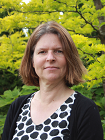
Judith Rosmalen is a driving force in international biopsychosocial research on health. She focuses on persistent physical problems, caused by known medical conditions or by unknown causes. Her research makes use of long-term cohort studies such as Lifelines and TRAILS, which she has often helped set up. These studies map a unique combination of biomedical and psychosocial data related to health, and have proven to be highly valuable, for example in research on post COVID condition.
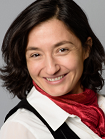
Since 2022
Maria Antonietta Loi holds two world records: that of the best performing solar cell created with quantum dots and made using Sn-based perovskites. Loi has the perfect combination of creativity, vision and transdisciplinary knowledge required to create the solar cell of the future. By exposing physical principles and manipulating materials down to the nanoscale, she translates fundamental physics into concepts that can be used for the energy transition. Her work has yielded patents, start-ups and close cooperation with industry. Loi is also a passionate and knowledgeable educator. Her PhD students invariably complete their PhDs within the nominal four years and her postdocs find excellent positions.
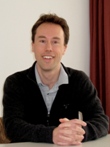
Dirk Slotboom specialises in explaining and manipulating membrane transport in bacteria and mammalian cells. He established his reputation by discovering a new displacement mechanism, with one protein component distorting the membrane, allowing a second protein in the membrane to tilt, thus bringing in a substance from outside the cell. In his work, he combines biochemical, biophysical and microbiological methods, but Slotboom's interests extend far beyond his own field. Together with synthetic chemists, he is attempting to develop substances that can inhibit membrane transport and, ultimately, possibly serve as antibiotics. He is an outstanding, multiple award-winning lecturer and one of the architects of an entirely new multidisciplinary curriculum for the Life Science and Technology programme at the RUG. The programme meets a great need among both students and employers.
Other KNAW members with an appointment at the UG
|
prof. dr. G.J. (Gerard J.) van den Berg (since 2021)
|
Prof. dr. P.C. Westerman (since 2010)
|
|
prof. dr. L.C. (Rineke) Verbrugge (since 2021)
|
Prof. dr. A.J.M. Driessen (since 2009)
|
|
prof. Sijbren Otto (since 2020)
|
Prof. dr. T. Piersma (since 2009)
|
|
prof. dr. M.E. (Marcel) Visser (since 2017)
|
Prof. dr. B. Poolman (since 2009)
|
|
prof. dr. Linda Steg (since 2017)
|
Prof. dr. ir. B.J. van Wees (since 2009)
|
|
prof. dr. Clara Mulder (since 2017)
|
Prof. dr. H.W. Broer (since 2008)
|
|
prof. dr. Amina Helmi (since 2017)
|
Prof. dr. B.L. Feringa (since 2006)
|
|
prof. dr. André Aleman (since 2017)
|
Prof. dr. M.A. Harder (since 2005)
|
|
Prof. dr. P. Hendriks (since 2016)
|
Prof. dr. M. Joëls (since 2002)
|
|
Prof. dr. P. Kleingeld (since 2015)
|
Prof. dr. J.T.M. de Hosson (since 2001)
|
|
Prof. dr. T.N. Wijmenga (since 2012)
|
Prof. dr. ir. E. van der Giessen (since 1999)
|
|
Prof. dr. L.W. Nauta (since 2011)
|
Prof. dr. S.M. Lindenberg (since 1994)
|
|
Prof. dr. C.W.A.M. Aarts (since 2011)
|
Prof. dr. T.S. van Albada (since 1984)
|
KNAW Academy Medal
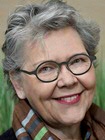
De Royal Netherlands Academy Arts and Sciences awards every other year the Academy Medal to individuals who have made an outstanding contribution to the advancement of science in the Netherlands. In 2019, Trudy Dehue, scientific sociologist, author and emeritus professor of the University of Groningen, received the Academy Medal from the Royal Netherlands Academy of Arts and Sciences (KNAW). The prize was awarded to Dehue for the fact that she started the societal debate on important issues in science.
Read more about Trudy Dehue
Academy Professors Prizes
Until 2016 the Royal Netherlands Academy of Arts and Sciences (KNAW) also annually awarded two prizes, each worth € 1 million. One prize was awarded to the most excellent researcher in the social sciences or humanities, and the other to the most excellent researcher in the natural, technical or life sciences. The Academy Professor grants were awarded to excellent researchers as lifetime achievement awards for exceptional achievement throughout the course of their careers.
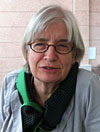
2010: Prof. Elisabeth de Vries
Elisabeth de Vries (Medical Oncology) was appointed Academy Professor in recognition of her pioneering research within a very wide spectrum of medical oncology. She is a prominent international researcher and develops and implements new techniques in both scientific research and patient care.
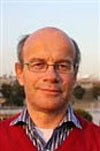
2010: Prof. Eric Bergshoeff
Eric Bergshoeff (Theoretical Physics) has made important contributions to scientific breakthroughs in the field of string theory and membranes. He is an internationally renowned scientist whose ideas have strongly influenced the field and its development. Throughout his career, Bergshoeff has been an innovative researcher, and his development of brane theory has had a lasting influence on theoretical and mathematical physics.
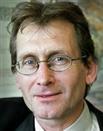
2008: Prof. Ben Feringa
Ben Feringa was awarded an Academy Professor Prize for his groundbreaking work in the field of chemistry. He became world-famous after he synthesized organic molecules. Feringa was the first person to synthesize molecular motors that continued to turn under the influence of light. Colleagues worldwide regard this as one of the high points of modern chemistry. Many of the postdoc researchers he has attracted from all over the world have moved on to fill high positions at prominent universities outside the Netherlands.
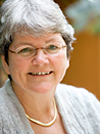
2007: Prof. Dirkje Postma
Dirkje Postma, Professor of the Pathophysiology of Respiration, was awarded an Academy Professorship ‘for her contributions to the field of pulmonary disease’. Postma has worked on asthma, chronic obstructive pulmonary diseases (COPD) and allergies. Her early work, leading to the use of steroids as a standard treatment for asthma patients, has benefited many millions of people worldwide. She continues to do both clinical work and basic research at an exceptional level. She has successfully expanded her research into the genetics of asthma and is now recognized as being one of the leading investigators in this field worldwide.
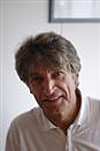
2005: Prof. Bram Buunk
Bram Buunk , Professor of Social Psychology at the University of Groningen, was awarded an Academy Professorship for his influential theoretical contribution to social comparison theory, his empirical research into social comparison processes in several new domains, and his evolutionary-psychology approach to social behaviour. His work constitutes an important contribution to solving problems linked to work-related stress, burnout, mental health and serious illnesses. His research has also resulted in important new conclusions in the field of jealousy and reciprocity in interpersonal relationships.
| Last modified: | 23 September 2024 09.29 a.m. |
